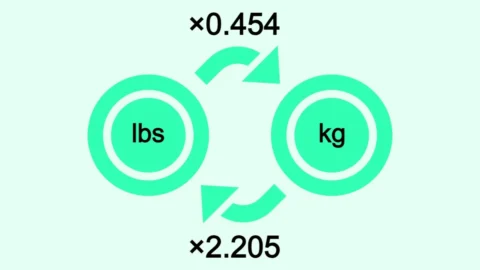Power Unit Converter
Convert between BTU/hr and Watts with this advanced calculator
Calculation:
British Thermal Unit per hour (BTU/hr) is a traditional unit of power commonly used in heating, cooling and air conditioning systems in the United States.
1 BTU is the amount of heat required to raise the temperature of one pound of water by one degree Fahrenheit.
Watt (W) is the SI unit of power, defined as one joule per second. It measures the rate of energy transfer.
The conversion factor is:
- 1 BTU/hr = 0.29307107 W
- 1 W = 3.412142 BTU/hr
Common applications include:
- Air conditioners: 5,000-18,000 BTU/hr (1,500-5,300 W)
- Space heaters: 5,000-10,000 BTU/hr (1,500-3,000 W)
- Refrigerators: 300-600 BTU/hr (90-175 W)
Calculation:
Watt (W) is the SI unit of power that measures the rate of energy transfer. It is equal to one joule per second.
British Thermal Unit per hour (BTU/hr) is commonly used in the United States for specifying heating and cooling system capacities.
Common wattage examples:
- LED light bulb: 5-15 W (17-51 BTU/hr)
- Laptop computer: 30-200 W (102-682 BTU/hr)
- Microwave oven: 600-1200 W (2,047-4,095 BTU/hr)
- Portable heater: 750-1500 W (2,559-5,118 BTU/hr)
- Window air conditioner: 500-1500 W (1,706-5,118 BTU/hr)
A helpful way to remember:
- For rough estimates, 1 W ≈ 3.4 BTU/hr
- For rough estimates, 1000 BTU/hr ≈ 293 W
If you’re in the field of HVAC, engineering, or simply curious about energy conversions, you’ve likely encountered the need to convert BTU per hour (BTU/hr) into watts (W). Our BTU per Hour to Watts Conversion Calculator is designed to make this process seamless, accurate, and accessible.
In this blog post, we’ll explore the importance of this conversion, its practical uses, and provide answers to commonly asked questions (FAQs). Read on to understand why this calculator is an essential tool for professionals and enthusiasts alike.
What is BTU/hr?
BTU/hr, or British Thermal Units per hour, is a unit of measurement used to quantify heat energy. In the context of heating, cooling, and energy systems, it refers to the amount of heat transferred per hour.
For example:
- A window air conditioner might have a cooling capacity of 5,000 BTU/hr.
- A home heating system could be rated at 40,000 BTU/hr.
What is a Watt?
The watt (W) is the SI unit of power, commonly used worldwide to measure electrical power and energy transfer rates. Unlike BTU/hr, which is more common in specific industries, watts are universally recognized, making conversions essential for global applications.
Why is the BTU/hr to Watts Conversion Important?
Converting BTU/hr to watts is critical for various reasons:
Global Standardization:
- Watts are the universal unit for measuring power. Converting BTU/hr to watts allows for easy comparison and communication across international markets.
Energy Efficiency:
- Understanding energy consumption in watts helps optimize energy usage, saving costs and improving efficiency.
System Compatibility:
- Many modern heating and cooling systems display ratings in watts. Converting BTU/hr ensures proper compatibility and accurate sizing.
Simplified Calculations:
- For engineers, HVAC professionals, and students, the ability to quickly and accurately convert units is invaluable for day-to-day tasks.
Uses of the BTU/hr to Watts Conversion Calculator
This calculator is an indispensable tool for:
HVAC Professionals:
- Quickly calculate the power of heating or cooling systems to ensure proper installation and operation.
Engineers:
- Determine energy outputs for designing and analyzing power systems.
Homeowners:
- Understand the energy capacity of home appliances like air conditioners, heaters, and boilers.
Students:
- Simplify complex energy-related calculations for academic projects and research.
Energy Auditors:
- Evaluate energy consumption and recommend efficiency improvements.
How to Use the BTU/hr to Watts Conversion Calculator
Using our calculator is simple:
- Input the Value: Enter the power in BTU/hr.
- Click Convert: Instantly view the equivalent power in watts.
- Reset if Needed: Clear the fields to perform another calculation.
With its straightforward design and accuracy, this tool is perfect for quick conversions.
BTU/hr to Watts Conversion Formula
The manual formula for this conversion is:
Watts (W) = BTU/hr × 0.29307107
For example:
- 5,000 BTU/hr × 0.29307107 = 1,465.355 W
- 12,000 BTU/hr (1 ton of refrigeration) × 0.29307107 = 3,516.852 W
Our calculator eliminates the need for manual calculations, providing instant results.
Frequently Asked Questions (FAQs)
1. Why should I convert BTU/hr to watts?
Converting BTU/hr to watts ensures compatibility with global power standards, simplifies energy usage comparisons, and helps in accurately sizing appliances and systems.
2. Can this calculator handle decimal inputs?
Yes, our calculator accepts decimal values for precise calculations. For example, you can input 5,250.75 BTU/hr, and it will provide the exact wattage.
3. Is the conversion accurate?
Absolutely! The conversion is based on the industry-standard formula, ensuring 100% accuracy.
4. Can I use this calculator offline?
Since the calculator is available in a single HTML file, you can download and use it offline on any device.
5. Who benefits from this tool the most?
Professionals in HVAC, engineers, energy auditors, homeowners, and students find this tool highly beneficial for their specific needs.
6. What is the relation between BTU/hr and watts?
1 BTU/hr equals 0.29307107 watts, making the two units directly proportional and easy to convert using the given formula.
Key Benefits of Our Calculator
- Accuracy: Delivers precise results instantly.
- Ease of Use: Intuitive design for hassle-free calculations.
- Accessibility: Works on desktop and mobile devices, online or offline.
- Time-Saving: Eliminates the need for manual conversions.
Importance of Accurate Energy Conversions
Accurate conversions between BTU/hr and watts are vital for energy-efficient system designs, cost analysis, and ensuring appliances are compatible with regional power standards. Whether you’re sizing an HVAC system, analyzing energy consumption, or comparing products, this conversion plays a critical role.
The BTU/hr to Watts Conversion Calculator is an essential tool for anyone working with energy systems. It simplifies complex conversions, saves time, and ensures accuracy, making it a must-have for professionals and enthusiasts alike.
Bookmark our calculator and start using it today for all your BTU/hr to watts conversion needs. Have questions or suggestions? Drop us a comment or get in touch — we’d love to hear from you!



